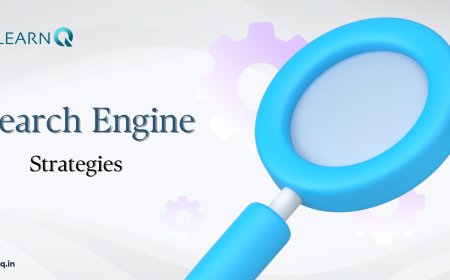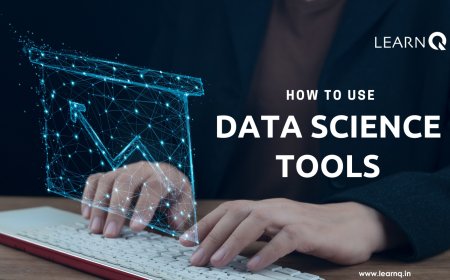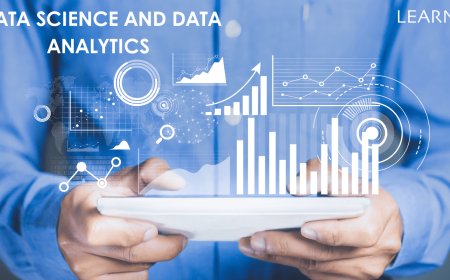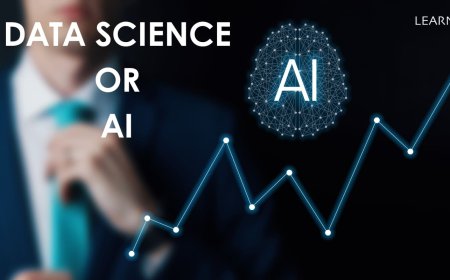In the world of data science, where we collect, analyze, and understand huge amounts of data to learn valuable things, having good tools is important. These tools are like the essential building blocks for people working in data science. They help us deal with the tricky parts of analyzing data, making predictions, and using artificial intelligence. Data science mixes different areas like math, computer programming, and machine learning. Python is a popular programming language in this field. It's great because it has lots of extra tools, like NumPy, Pandas, and Scikitlearn, which help us work with data easily. Many data scientists use Python because it's flexible and not too hard to learn.
Data science tools do lots of things. One important job is making data easier to understand by showing it in graphs or charts. Tools like Matplotlib, Seaborn, and Plotly help us do this. They let us share our findings with others in a way that's easy to understand. Big data is another big deal in data science. We're talking about really huge amounts of data that regular tools can't handle easily. That's where special tools like Apache Hadoop and Spark come in. They help us process all that data fast by using lots of computers at once.
How Data Tools Help Us Understand Information Better
Understanding large amounts of information is important for businesses to compete well. Data tools are really helpful for this. They're like the backbone of how we analyze stuff in different industries. One big thing about data tools is they can handle lots of data well. There's so much data being made every day that old ways of looking at it don't work so great anymore. Data tools have fancy algorithms and ways to process data quickly. This helps companies go through huge sets of data fast and find useful stuff.
These tools can do lots of things, like cleaning up messy data and doing advanced analysis and predictions. They help experts look at data closely, find patterns, and make guesses that are often right. Whether it's looking at stats or guessing what might happen next, these tools make it possible to get good info from complicated data. Also, data tools make it easy for teams to work together and get stuff done smoothly. They let people share data, keep track of changes, and make sure everyone is getting the same results. These tools don't just help businesses understand data better. They're also really important in other fields like healthcare, finance, and marketing. By using these tools well, companies can do better than others, make things run smoother, and find new chances to grow.
Facing Big Challenges
Businesses rely a lot on data science tools to help them make better decisions. These tools can do things like predicting trends or spotting patterns in large amounts of data. But using them isn't always easy. Let's talk about some of the big problems companies face:
1. Getting Good Data:
-
If the data going into these tools is bad, the results will be bad too. Sometimes, the data is messy or incomplete, which makes it hard for the tools to work well.
-
It's also tough to gather data from different places. Sometimes, data is stuck in different departments or systems, and it's hard to bring it all together for analysis.
2. Finding the Right People:
-
There aren't enough skilled people to do all the data work that companies need. Finding experts who know data science and also understand the business side of things is a real challenge.
-
Even if a company has data experts, they might not communicate well with the rest of the team. Everyone must understand each other to make the best decisions.
3. Being Ethical and Following Rules:
-
With so much data flying around, there are worries about privacy and security. Laws like GDPR and CCPA try to make sure companies use data responsibly, but it's not always easy.
-
Sometimes, the data or the tools themselves can be biased. This means they might treat people unfairly. Companies need to work hard to make sure their data and tools are fair for everyone.
4. Dealing with Big Data:
-
Companies are drowning in data these days. Handling all of it requires powerful systems, often in the cloud, which can be expensive.
-
Making all the different data systems work together smoothly is another headache. Everything must talk to each other to get the best results.
5. Changing the Company Culture:
-
Not everyone likes the idea of using data to make decisions. Some people prefer doing things the old way. Changing their minds takes time and effort from company leaders.
-
Even if everyone is on board, switching to a data-driven culture can be hard. People need training and support to adapt to new ways of doing things.
What tools are really important for data science?
When you're doing data science, you need to focus on some key tools to do your job well. Firstly, you should learn programming languages like Python and R because they're super useful for handling data and doing advanced analysis. There are also special libraries like Pandas, NumPy and scikitlearn make working with data easier. Knowing SQL is also important because it helps you manage databases and get the information you need. You'll also want to get comfortable with tools like Matplotlib, Seaborn, and Tableau for making cool visualizations of your data. Using Git for version control can help you keep track of changes in your projects and work better with others. As more data moves to the cloud, knowing platforms like AWS, Azure, or Google Cloud can be really helpful for handling big data projects. Finally, make sure you're keeping up with new tools and technologies in the field so you can stay on top of your game. Mastering these tools will make you a pro at data science and help you tackle any project that comes your way.
Data Science Tools for Doing Data Science Well
When you're doing data science, having the right tools is like having a special skill. These tools help you find patterns, understand data, and make clever choices. Let's look at the important ones
1. Python: It's like the Swiss Army knife of data science. With Python, you can do almost anything – from sorting data to building fancy models that predict stuff.
2. R Programming: This one's great for stats. If you need to crunch numbers and analyze data in-depth, R's your friend.
3. Jupyter Notebooks: They're like interactive notebooks where you can write code, make graphs, and explain what you're doing – all in one place.
4. SQL: It's what you use to talk to databases. If you want to pull out specific pieces of data or combine different datasets, knowing SQL is a big help.
5. Apache Spark: When you're dealing with massive amounts of data, Spark helps you handle it all without breaking a sweat.
6. TensorFlow and PyTorch: These are for building fancy machine learning models, especially ones that deal with things like images or text.
7. Tableau and Power BI: These tools make it easy to turn your data into cool charts and graphs that everyone can understand.
8. Git and GitHub: They're like your safety net. You use them to keep track of changes you make to your code and work with others without messing things up.
9. Docker and Kubernetes: These are like magic boxes that help you package up your code and run it anywhere without any headaches.
10. Apache Airflow: It's like having a personal assistant for your data tasks. Airflow helps you automate all sorts of processes, so you can spend less time doing boring stuff.
Data science tools are like a big toolbox full of different gadgets that help companies understand lots of information. Some tools, like Python and R, are like special languages that help you work with data. Then there are big frameworks like TensorFlow and PyTorch, which are sturdy platforms for doing advanced stuff like deep learning. But it's not just about crunching numbers. There are also tools like Tableau and Power BI that help make fancy charts and graphs, so it's easier to show people what you've found in the data. As more and more data gets collected, these tools are super important for helping businesses make smart decisions and come up with new ideas. So, they must keep getting better and keep working well together. This way, data science can keep on being a superhero for companies in the modern world.




































